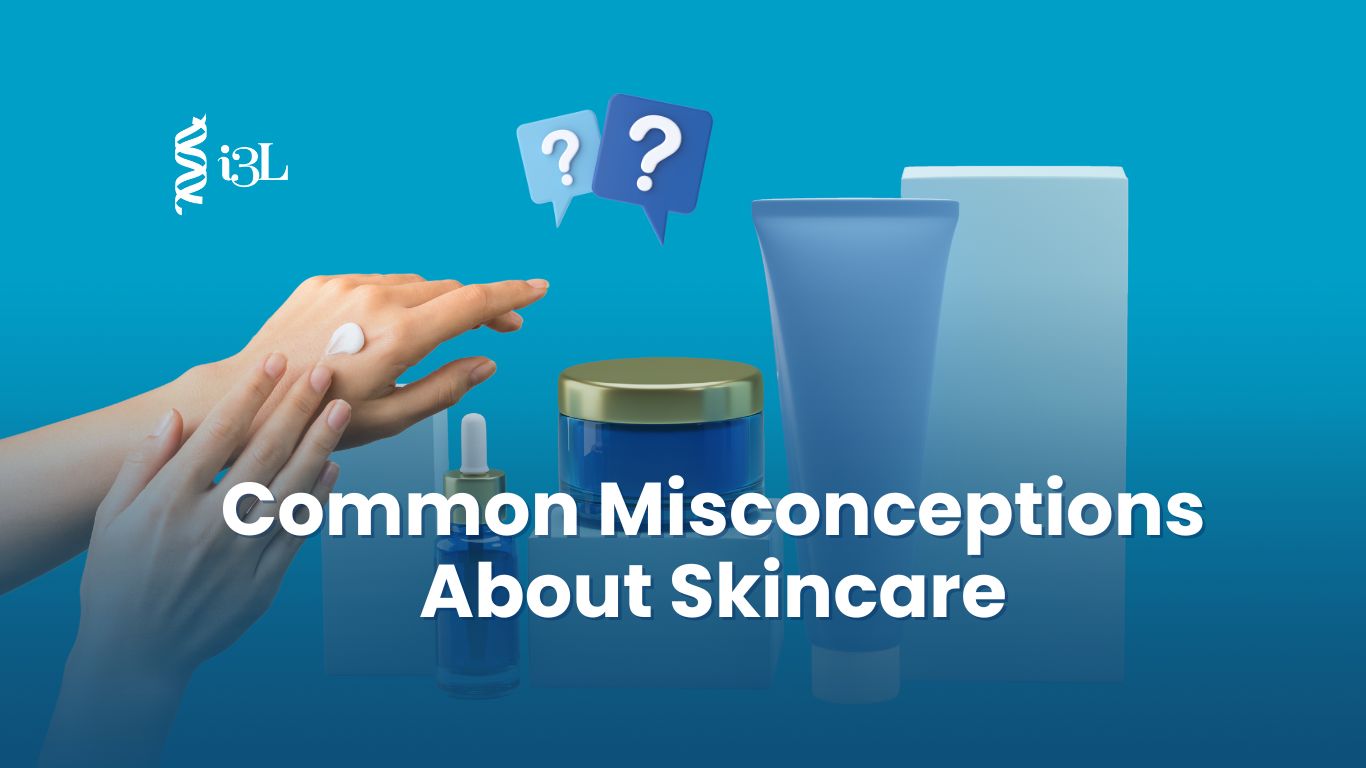Undergraduate Programs:
School of Health and Life Sciences
School of Business and Management
Postgraduate Program:
Professional Program:
Pharmacist Professional (Apoteker)
Common Misconceptions About Skincare

Wednesday, February 24, 2025 — Beauty is subjective, but one thing is for sure—it feels good to take care of yourself. One of the most common steps in self-care is skincare! Skincare helps maintain and improve your skin’s condition through various products and techniques. However, with the skincare industry being so broad and vast, it’s normal to feel confused about where to start and what to do to improve your routine.
Another important point to mention is that everyone’s skin is different—what works for you may not work for your friend. That’s why researching and identifying your skin type beforehand is crucial. The internet is a great resource for skincare information, but it also spreads many misconceptions. Some popular recommendations and “approved” skincare trends can actually do more harm than good. It’s important to fact-check before trying new products or following certain practices. Here are some common skincare misconceptions you should look out for!
Misconception #1: You don’t need to wear sunscreen every day
Sunscreen is one of the most important steps in your skincare routine, yet some believe it’s optional on cloudy or rainy days. This is simply not true! Sunscreen protects your skin from UVA and UVB rays, which can still penetrate clouds and cause skin damage. That’s why wearing sunscreen daily is essential, regardless of the weather.
Misconception #2: If it burns, it means it’s working
Many believe that a burning sensation indicates a skincare product is effective. This is false! If a product causes a persistent burning sensation, it may be damaging your skin’s protective barrier. It could also mean your skin is sensitive to a specific ingredient. Instead of enduring discomfort, switch to a gentler product that suits your skin type.
Misconception #3: Natural ingredients are always safer
Not all natural ingredients are safe or better for your skin. Many natural products still contain allergens or synthetic additives, and around 80% of natural skincare claims are not well-supported by research. A product’s safety depends not just on its source but also on its formulation and how it interacts with your skin.
Misconception #4: Higher concentrations of active ingredients are more effective
More isn’t always better! High concentrations of active ingredients can lead to skin irritation, redness, peeling, and even chemical burns. Many active ingredients have an optimal concentration beyond which additional amounts offer no extra benefits. Effective skincare products balance active ingredients to work harmoniously with your skin without overwhelming it.
Misconception #5: Oily skin doesn’t need moisturizer
Some believe that using moisturizer will make oily skin worse, but the truth is that every skin type needs hydration. Skipping moisturizer can actually cause your skin to overproduce oil, leading to even more greasiness. Instead of avoiding moisturizer, opt for a lightweight, non-comedogenic formula designed for oily skin.
Misconception #6: Acne is caused by dirt
Acne is not caused by dirty skin. Instead, it results from factors like hormones, excess oil production, and bacteria—not dirt. Overwashing your face in an attempt to “clean” acne can strip the skin of its natural oils, leading to irritation and potentially worsening breakouts. Instead, focus on proper cleansing and use targeted treatments like salicylic acid to manage acne effectively.
By understanding these common skincare misconceptions, you can make more informed decisions about your routine, focus on what truly benefits your skin, and avoid falling for myths or marketing gimmicks. Learning the science behind skincare empowers you to choose products and practices that align with your unique skin needs, ultimately helping you achieve healthier, more radiant skin.

About Pharmacy | i3L Bachelor’s Program
Pharmacy is one of the most interesting and well known majors in Indonesia, which focuses on medicine, which covers from drug discovery, development, clinical trial, drug delivery, drug management and also patient counseling. Pharmacy is the bridge knowledge between biomedical scientists and medical doctors, and highly relates to biomedical science, chemistry, pharmacology, pharmaceutical engineering, social science and population health. Pharmacist is among of the most respected professions in the world, whether in the government institute, research institute, pharmaceutical industry, or clinical pharmacy.
Undergraduate Programs:
School of Health and Life Sciences
School of Business and Management
Postgraduate Program:
Professional Program:
Pharmacist Professional (Apoteker)
Undergraduate Programs:
School of Life Sciences
School of Business
Postgraduate Program:
Professional Program: